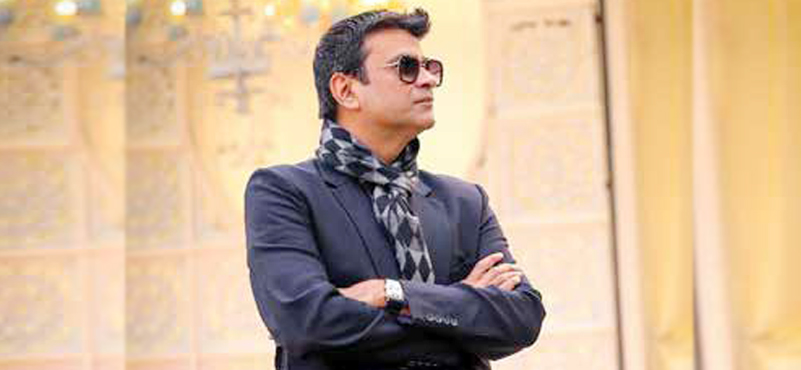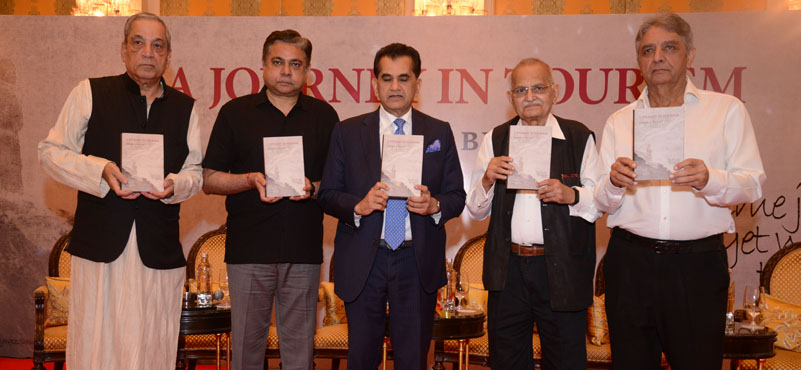Much has been written and discussed on the B2C segment and the challenges therein. However, the churn in the B2B segment has not been adequately documented in the recent past. We reached out to Ankush Nijhawan, the B2B leader in India, to gain insights into the trends in the segment. He highlights the lack of liquidity, coupled with a sense of uncertainty, as reasons for the short-term conservative outlook among travel agents. Nijhawan seems bullish on demand but urges policy-level tweaks, most notably a uniform policy on movement, to quickly recover lost ground. Excerpts from our recent conversation with the MD, Nijhawan Group & Co-Founder, TBO Group
Travel agents and travellers are equally concerned about finances
The most notable challenge faced by the consumers today is the liquidity crunch, he says, sharing his thoughts on the long-tail of the travel agents associated with his company. The end-consumer is struggling, which is impacting the travel agent community, Nijhawan stresses. “Some have lost their jobs. Others are managing businesses that have shrunk considerably in size”, he says, adding that the agents wish to conduct transactions but are unable to get the finances from the consumer. Travel agents are equally concerned about the repayment of the transactions from the consumers, as there is a possibility of not recovering the spent sums given the current financial environment. Therefore, bridging the economic uncertainty between the two spectrums is a significant issue, despite the willingness from, both, the travel agent fraternity and the end-consumer, he believes.

There are concerns among the end-consumers too. They are unsure whether they would be refunded their hotel and airline bookings, should travel not materialise, he says, which is probable as travel regulations are highly fluid and vary significantly from one state to the other.
Nijhawan suggests that fast-changing and profoundly varying policies are exacerbating the situation, creating further uncertainty among the broader tourism ecosystem, causing additional stress in the travel agent community. “The policy may be very different on the travel date than what it was when the bookings were made. Any state or even the country might go into lockdown at any given time,” he says, indicating that tourists are genuinely concerned about what may occur if they choose to leave their homes.
However, the liquidity crunch, coupled with the uncertainty in the near-term, means travel agents are not keen on parting with their money right now, Nijhawan explains.
Banks are not providing loans and tourism is the worst-hit industry, he says, explaining the rationale behind travel agents’ changed modus operandi.
“I do believe that tourism is only going to get better from here on. However, if things do turn awry, only cash reserves would save your business. It is also not prudent to do business on loaned money, with exorbitant interest rates. We are also unsure whether the moratorium on loan repayment would be extended beyond 20th of September. So conserving cash is the only viable strategy under the circumstances,” Nijhawan argues.
A sectoral breakup

“There is an excess supply and hardly any demand for hotels. Domestic airlines are registering a load factor of 73-75 percent, which is truly commendable given that COVID-19 continues to be very aggressive,” he shares. He notes that much of the travel happening right now is purely distress-driven or discretionary, except for Dubai.
“Dubai is picking up some serious travel numbers right now,” he says. He also believes that the Maldives and Sri Lanka can register notable numbers in the coming months.
He shares that his company has also reduced the credit line extended to travel agents by 50 per cent, compared to pre-COVID-19 times, not because of lack of trust but liquidity and concerns on whether they would be able to recoup their investments from consumers.
A surprising turnaround
The numbers are significantly positive, and he has been pleasantly surprised at the pace of the recovery in the domestic market, Nijhawan says. “The market is definitely on the right track,” he asserts.
Uniform policies needed
He points towards visibly distinct approaches by various state governments on resuming travel and tourism. While Himachal Pradesh has allowed travel, some of the neighbouring states are yet to take a call, which lowers the tourist count as road access remains curtailed, he explains. “Such dichotomies are only further demotivating people from travelling. This needs to be looked into,” he advises.
Businesses are struggling right now, and the indirect tax collection has plummeted, he says, arguing that tourism can inject liquidity into the economy and the Centre’s push for a country-wide uniform and favourable policy on movement can greatly benefit the ecosystem.
“Tourists who were spending money abroad, are willing to spend those sums in the country. Uniform policies would give the tourists the confidence that they would not have to go through a week-long quarantine at the destination,” Nijhawan concludes.




































